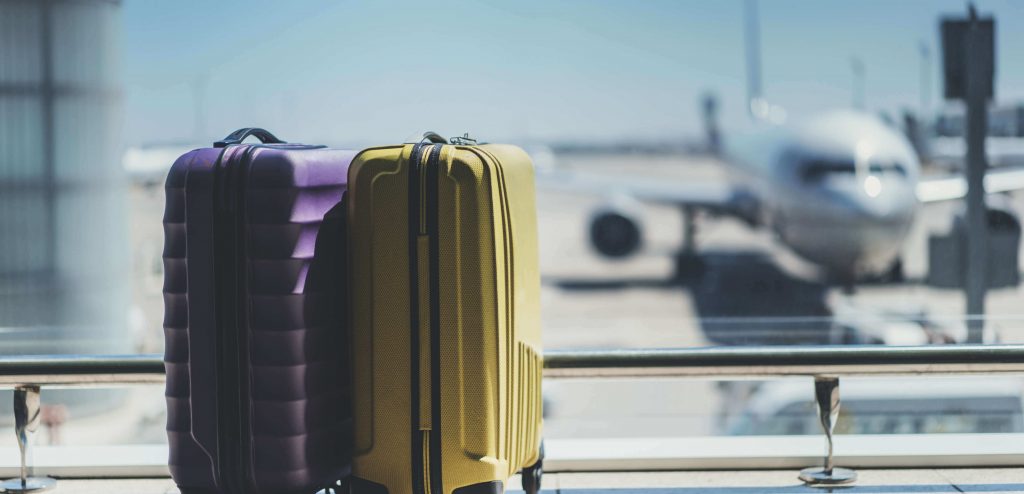New legislation on the table in Pennsylvania calls for the existing Las Vegas-style casinos to operate traditional slot machines in state airports.
The bill, filed on April 2, would effectively change a law passed in 2017 that called for airports to have interactive slots on tablet devices. House Bill 1023 would allow the 13 casino licensees to apply for certificates to bring slots to qualifying Keystone State international airports. The state has seven of those.
The legislation comes at a time when Pennsylvania gaming regulators are approving satellite casinos with up to 750 slots, as well as video gaming terminals (VGTs) at truck stops. Pennsylvania already has more than 25,000 slot machines between the 12 casinos that currently exist.
Those machines generated $2.36 billion in revenue in 2018, up slightly over 2017 but still down from the state’s peak of $2.38 billion in 2013.
The Pennsylvania Gaming Control Board told PennBets on Wednesday that it doesn’t have a position on the legislation, a standard position for the state agency.
Why more slots?
The one-armed bandits are just one type of casino-style gaming. Why are some in Pennsylvania, already no. 3 among all states in terms of the number of slots in commercial casinos, so eager to have more?
The casinos pay an effective 54% tax rate on slot machine revenue, making Pennsylvania a true slot partner. For comparison, Pennsylvania’s live dealer table games are subjected to a 16% tax rate. Slots generated a whopping $1.37 billion in tax revenue for Pennsylvania last year.
The airport slot machines would be subjected to the same rate under the legislation.
But are slots really the way to go for the long-term sustainability of the Pennsylvania gaming market? Probably not, but the baby boomers, many of whom are retired or close to entering retirement, are still pouring money into them. Obviously, this won’t last forever.
According to a 2018 “State of the States” report from the American Gaming Association, growth in commercial casino table game revenue nationwide outpaced that of gaming machines in 2017, which continued “a recent trend of younger patrons expressing a preference for games like blackjack and poker over traditional slot machines.” There’s also sports betting, which is becoming more mainstream as additional states legalize the activity. We’re a long way from slots disappearing, but the dinosaurs’ days are numbered.
Thanks to its emphasis on slots, Pennsylvania’s market saw the opposite happen in 2018: Slot revenue inched up 1.4%, while table game revenue fell 1.3%. It was the first year-versus-year table game win decline since those games kicked off in 2010. Pennsylvania is all in on slot machines, but that is problematic.
As the years tick on, I think this will be the first of many headlines about slot machines. They're still great today, but slot machines are the XBOX, Nintendo, PC of my parent's generation.https://t.co/gUhnwJ4KhD
— Seth Young (@sethyoung) March 27, 2019
With that said, slots might be the way to go if a state wants gaming at airports. Passengers are on tight schedules, so an airport poker room likely wouldn’t work (the hit-and-runs would also be detrimental to the game). Any game involving buying and cashing out chips probably would be less compatible with a busy airport.
The bill would allow up to 125, 100, or 25 slot machines, depending on the airport. Only the state’s international airports could host slots. Certificate holders for the largest airports seeking to install up to 125 slots would have to pay $10k per machine in the form of a one-time fee. It would cost $1.25 mm to have the maximum number of machines in one of those airports, a fee that would quickly be recouped. Less-busy airports would have lower fees for slots.
The largest airport in the state based on enplanements is the Philadelphia International Airport, with more than 14.5 mm in 2016. That much traffic could support 125 machines, but one should remember that soon Pennsylvania will have online casinos, equipped with virtual slots, table games, peer-to-peer poker, and sports betting. The machines would have stiff competition.
Under the proposed law, an airport would be limited to a single slot partner at a time.
HB 1023 would explicitly prohibit table games from being authorized for the airports.
Sponsor explains bill
The legislation comes from State Rep. William Kortz, a Democrat from just south of Pittsburgh. Kortz penned a memo in March explaining the forthcoming bill.
“Thousands of passengers walk through Pennsylvania’s international airports every day, many of whom shop and dine while they wait to board their flights,” Kortz wrote. “By adding slot machines in a secure area in airports it will add to the entertainment options available to passengers and thus expanding casino customer bases. Pennsylvania would have the tremendous opportunity of both increasing tax revenue and creating jobs in our communities.
“As the second-largest commercial casino state in the nation, we are perfectly poised to introduce slot machines into our airports. My legislation would give existing licensed casinos the opportunity to form an airport slot machine placement agreement to place up to 125 slot machines in first class county, 100 in second class county, and 25 in other qualifying international airports. Airport slot machines would be placed in secure areas of the terminal and would be accessible only to passengers 21 years of age or older who have cleared security checkpoints with a valid airline boarding pass.”






